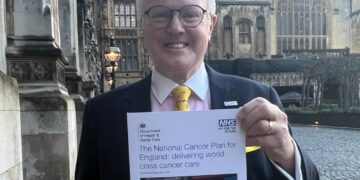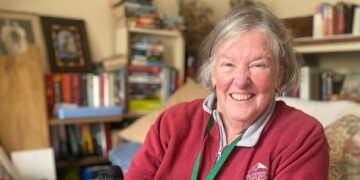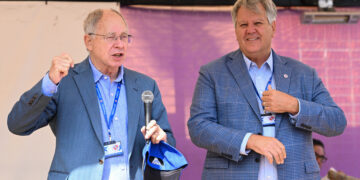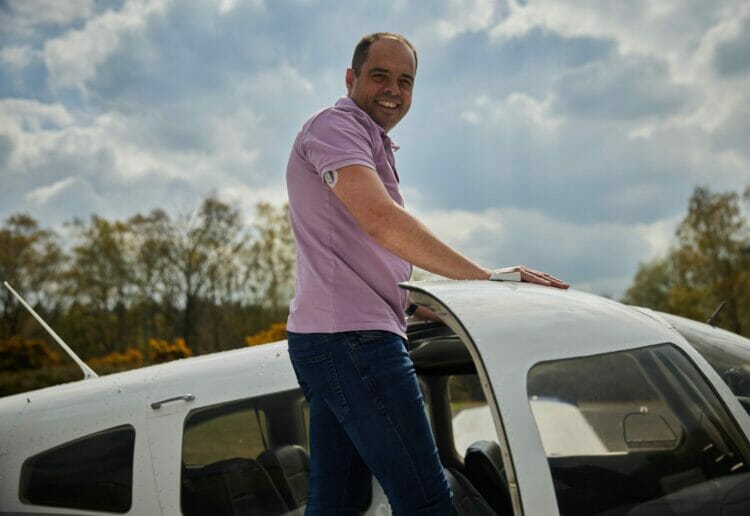A FREE webinar will see a Reading-based pilot share the technology that enables him to soar in his career.
It is being held to mark Diabetes Week, which runs from Monday, June 12 through to Sunday, June 18.
In it, Chris Wilkinson will share how he can manage his type 1 diabetes, to enable him to leave a normal life.
Type 1 diabetes is a serious condition which occurs when the body’s immune system attacks the insulin-producing cells of the pancreas. This means the cells in the pancreas can no longer produce insulin, leading to high blood sugar levels.
The 43-year-old was diagnosed with the condition four years ago, and immediately lost his Pilot Medical which not only allowed him to fly aircrafts, but enabled him to pursue a part-time job of teaching student pilots to fly.
Hes has since regained it and is now sharing his experience to help raise awareness of the importance of access to diabetes tech.
He said: “In June 2019, I started to feel ill. I was running to the toilet to wee six times a night and one particular morning I woke up and could not see correctly in my right eye, I had a constant dry throat and I couldn’t quench my thirst. I started to think something was really wrong.
“I was initially given a diagnosis of type 2 diabetes and was put on Metformin. It was such a shock. Over the next couple of months I kept going back to the GP. I couldn’t get my blood sugar levels in range.
“Within three months I’d lost three stone and was feeling very ill.
“In August 2019, I finally got referred to the diabetes clinic in Reading. The consultant ran all of the usual tests and then confirmed I actually had type 1 diabetes, rather than type 2.”
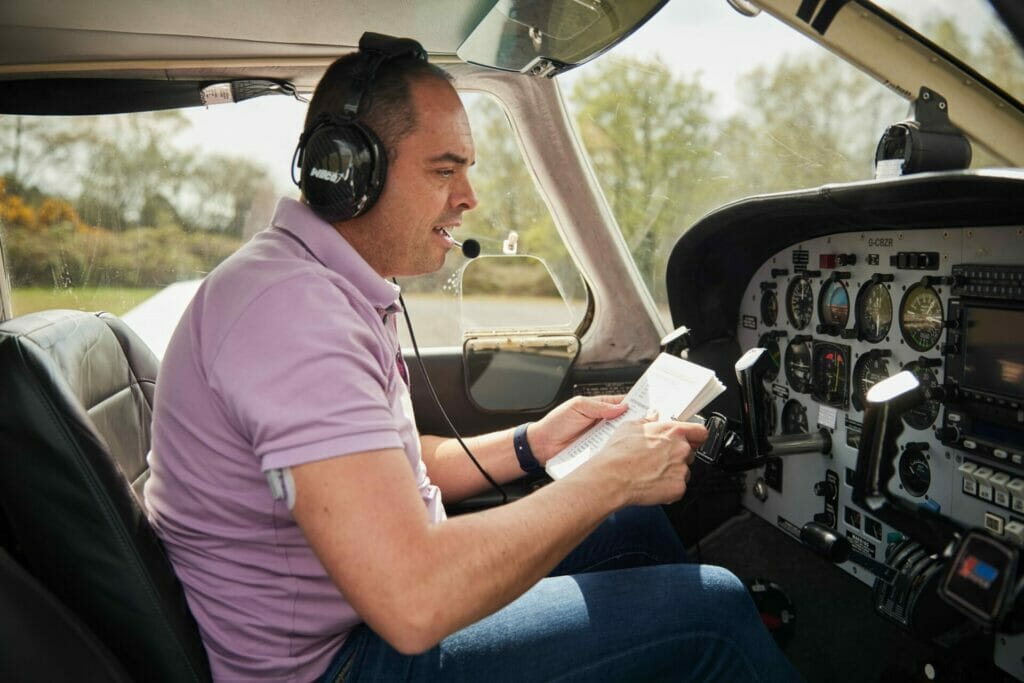
He immediately called his Civil Aviation Medical Examiner to share the diagnosis, and was told his Pilot Medical would be withdrawn.
“I was heartbroken,” Chris said. “Luckily, I had a very supportive Aviation Medical Doctor who pushed the Civil Aviation Authority to put me forward for the process to get my Pilot Medical back.
“This involved cardio fitness tests, seeing the Professor of Diabetes from the UK Civil Aviation Authority, providing up-to-date blood results for the last six months, and seeing a Professor of Cardiology who had to check that I was fit enough to complete a cardio fitness test.”
Eight months later, he got his wings again. He needs to check his blood sugar levels 30 minutes before flying, every hour while in the air and 30 minutes after he lands. He uses a continuous glucose monitor – a sensor that is worn on the body and reads sugar levels 24 hours a day, and the information is sent to a mobile phone, or other device.
“I was offered CGM on the NHS, but I need a specific brand so that I can follow the required procedures that enable me to fly, and this type of CGM isn’t available on the NHS, so it’s not a cheap option for me,” he said.
“It costs me £159 a month but having access to this tech has been lifechanging. I never want to be back in a position where my medical is taken away from me. I’m now one of only 60 pilots in the country who has type 1 diabetes and holds a Pilot Medical and can still fly as a solo pilot.”
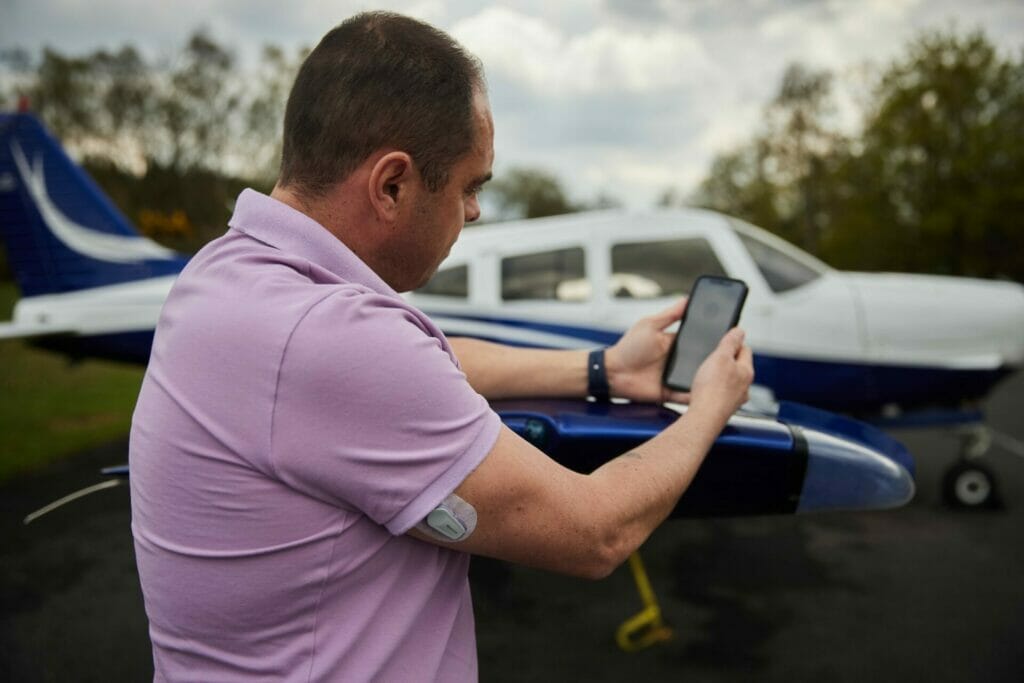
As part of Diabetes Week activity, Diabetes UK has also launched its Diabetes Tech Can’t Wait campaign, which aims to ensure everyone living with diabetes has fair and equal access to the diabetes tech they’re eligible for.
Phaedra Perry, Head of Diabetes UK – south west and south central, said: “Living with diabetes can be a constant juggling act but having the tech you need and are eligible for can help make your life that little bit easier.
“As Chris’ story shows, having access to tech means you can live well and embrace your hobbies and passions. Diabetes shouldn’t stand in the way of living life to the fullest.”
Chris added: “Don’t let diabetes run your life, live the life you want. It can take planning, it may take longer than you want to get there, but you can do it and it will be worth it.”
He will be speaking at Diabetes tech; what’s it all about? on Wednesday, June 15, at 7.30pm for an hour.
For more details, or to register a place, log on to: www.diabetes.org.uk/contact-regional



